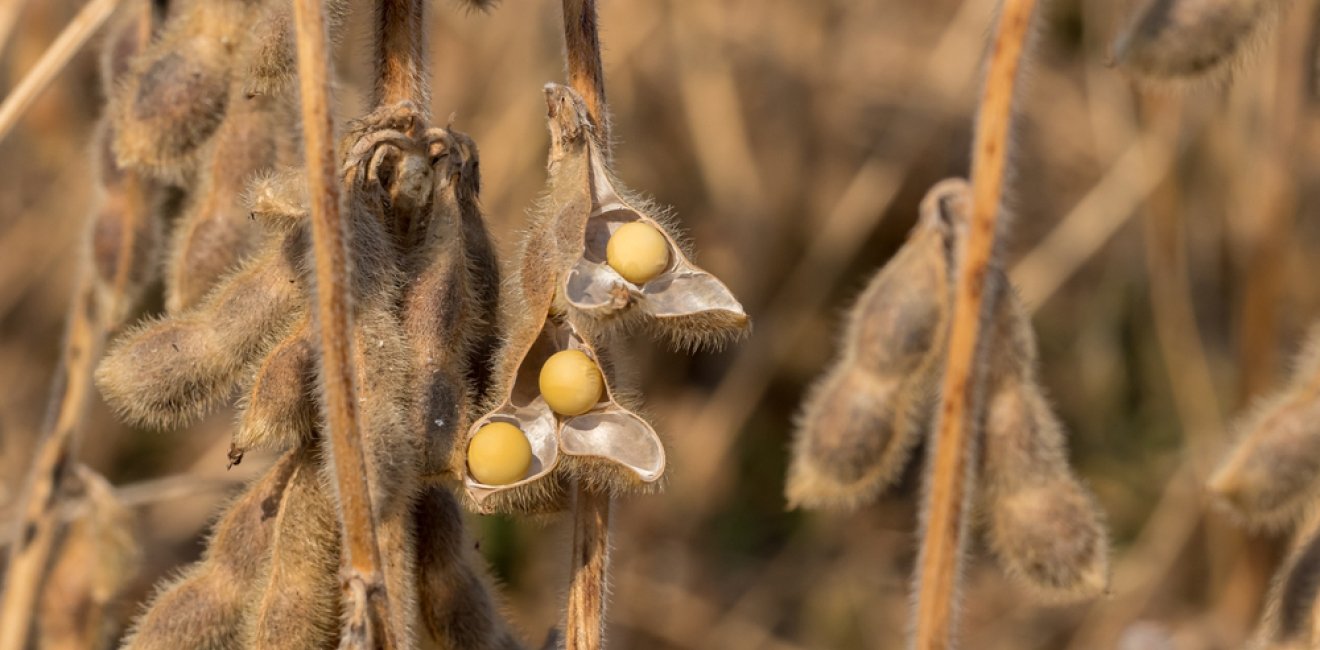
A blog of the Latin America Program
In the context of more frequent extreme climate events, South America is experiencing a severe drought for the third consecutive year – the worst in a century, primarily due to the La Niña phenomenon that has persisted since 2020. Among the countries most affected are those produce a significant amount of food for the world: Argentina, Brazil, Paraguay and Uruguay.
In 2021, these four countries accounted for approximately 13 percent of global food and fiber exports. They lead the commercialization of soybeans, soybean meal and pellets, soybean oil, frozen beef, cellulose, cane sugar, poultry and coffee, and account for a significant share of the global supply of wheat, fish fillets, pork, chilled beef, wine, fruits and fruit juice.
Production losses in the region as a result of the climate crisis directly impact global food markets and global food security.
The drought directly affects food production, resulting in lower crop yields, unharvested areas, reduced crop health and quality, additional supplementation costs (animal feed), limited access to water and pastures, increased livestock weight loss and mortality, forest fires and ecosystem deterioration and loss. This, in turn, increases the agriculture sector’s vulnerability in the future.
Food production systems are particularly vulnerable to the adverse effects of climate change. Consequently, it is of the utmost importance to channel efforts towards adaptation, to guarantee the resilience of these systems and maintain the necessary production levels for food security.
When direct production losses occur, it is important that countries declare agricultural emergencies and develop support policies and investment tools, such as credit options at subsidized interest rates, tax exemptions and temporary exceptional management measures.
Production losses, however, are only part of the challenge. The impacts of droughts are widespread, affecting the national economy and decreasing the quality of life of people in small towns and villages.
In Argentina, for example, the drought led to a declaration of a state of emergency and agricultural disaster in 33 municipalities of the province of Buenos Aires in December 2022. As of January of this year, estimated losses have amounted to $10.4 billion due to damage to various crops, including wheat, soybean and corn – the main crops grown in the countryside. At the national level, almost half of the stock of cattle is in areas affected by the drought, putting approximately 26 million head of cattle at risk. To complicate things further, the 2022-2023 wheat harvest yielded 12.4 million tons – 8.1 million tons below initial projections due to the absence of rainfall in a significant part of the agricultural area. The effects are devastating, with 1.6 million acres lost and the lowest production level in seven years.
In Brazil, rainfall in the southern and southeast regions has been the lowest in 90 years, which has led to serious water and energy crises. According to estimates, the drought resulted in a 10 million ton reduction in the grain harvest forecast for the 2021-2022 period, estimated at 262 million tons.
In Paraguay, a drought that spanned the 2021-2022 summer production period is among the worst climate phenomena to affect its agriculture sector in 25 years, reducing yields by up to 70 percent for some crops. In Uruguay, estimates of the direct impact of the drought amount to $1.17 billion, or 2 percent of GDP.
In response, the Southern Agricultural Council – made up of the agriculture ministers of Argentina, Brazil, Paraguay and Uruguay, as well as Chile and Bolivia – complained that, “developed countries have a historic responsibility to tackle climate change, acknowledged in all international forums and reflected in a commitment to provide funding for the actions of developing countries aimed at both adaptation and mitigation, but that commitment has only been partially fulfilled so far.” The ministers urged developed countries to fund mechanisms to strengthen agriculture sectors vulnerable to the adverse effects of climate change.
Efforts to address global food, nutritional and environmental security must be scaled up urgently. Importantly, those actions should involve international cooperation, so that no countries are left behind.
Author


Latin America Program
The Wilson Center’s prestigious Latin America Program provides non-partisan expertise to a broad community of decision makers in the United States and Latin America on critical policy issues facing the Hemisphere. The Program provides insightful and actionable research for policymakers, private sector leaders, journalists, and public intellectuals in the United States and Latin America. To bridge the gap between scholarship and policy action, it fosters new inquiry, sponsors high-level public and private meetings among multiple stakeholders, and explores policy options to improve outcomes for citizens throughout the Americas. Drawing on the Wilson Center’s strength as the nation’s key non-partisan policy forum, the Program serves as a trusted source of analysis and a vital point of contact between the worlds of scholarship and action. Read more


Argentina Project
The Argentina Project is the premier institution for policy-relevant research on politics and economics in Argentina. Read more

Explore More in Weekly Asado
Browse Weekly Asado
Dengue Haunts South America’s Summers

Lessons from Costa Rica’s Economic Transformation

Women and Latin America’s Digital Revolution

